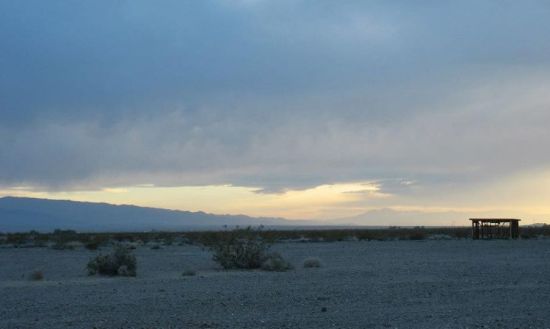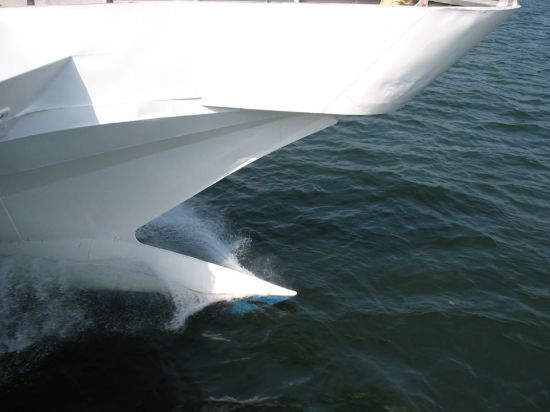 A few days ago, still on my way from the desert to the sea, I was rolling along in a pack of vehicles feeling hot and tired and ready for sleep but hours from it yet. We were making about 70 mph or so, steady on all, following too close for comfort, but settled into that routine and aiming for the Lackawanna toll booths on a New York pay road that wasn’t near lonely enough for my liking. Suddenly I saw a car stopped on the right shoulder and then up the hill from that a tall young man yanking on the back heel of a deer whose foot was stuck on the top line of a heavy-gauge field fence. Nine things went through my head simultaneously and hit a looping replay, in the manner of life-and-death coming down:
A few days ago, still on my way from the desert to the sea, I was rolling along in a pack of vehicles feeling hot and tired and ready for sleep but hours from it yet. We were making about 70 mph or so, steady on all, following too close for comfort, but settled into that routine and aiming for the Lackawanna toll booths on a New York pay road that wasn’t near lonely enough for my liking. Suddenly I saw a car stopped on the right shoulder and then up the hill from that a tall young man yanking on the back heel of a deer whose foot was stuck on the top line of a heavy-gauge field fence. Nine things went through my head simultaneously and hit a looping replay, in the manner of life-and-death coming down:
Must stop. He clearly doesn’t have the right tool for the job. Must stop safely. Signal, get off, get as far into the ditch as possible so I don’t cause a pile-up and wind up in the middle of an ER somewhere. Then back up closer so I don’t have so far to run. Get my Leatherman, it’s got pliers with wire cutters. Where is my backpack? Woman in a long citified dress and Crocs leaps a low ditch and heads up a steep bank, heavy weeds knee-high, and holding out an open Leatherman to the young man. Dear god, it’s hot.
He was beside himself by the time he saw me coming, having run once again to his car, clearly looking for a tool while I backed up toward him as far off the road as I could get, shaking his head and hands in dismay, and then slamming the trunk lid and running back up the hill to the fence. The deer just hung there, her front feet not able to touch the ground but pawing frantically toward it just the same. When he finally realized I was coming to help (I shouted, “Do you need a Leatherman?”), he ran toward me and took the knife, out of breath, saying thanks with his whole body, words not needed. He reached the deer before me, but not by much, and then just stood there panting.
The fawn still had spots, but she was close to losing them and large for her age. One back hoof was trapped, almost as if she’d started over, somehow kicked off on that upper line, and then flipped to the other side with her leg caught between the metal fencing. Her ankle was bleeding, swollen, and not going anywhere unless we could cut the fence free. I grabbed her upper leg with my left hand to keep her from falling when the fence was cut and nodded at the man: he clipped the top wire, and stepped back, unnerved. Blood stained my left palm, oozing out from where I was holding onto her. The other piece of the wire was embedded in her ankle and wouldn’t let go, though, so I held fast with my left hand and, with my right, bent the wire back out of the way. Then I eased her gently down to her side of the fence and stood back myself, also unnerved.
The deer floundered, trying to get up and away, not trusting that the tall fence between us was enough cover even from we two who had helped her. The young man, breathing hard and handing me back my knife, said, It may be broken. Maybe, I replied, but I don’t think so. I didn’t feel any obvious breaks. They’re pretty tough at this stage. We used to raise orphaned deer on our farm. If she can get settled down some, get that leg back under her and rest a bit, she might make it.
I was convincing myself as much as anyone, watching her lurch and struggle into the undergrowth, hoping against hope that her mother would still be nearby or that, if not, the baby would rest and then be able to go on. If I could’ve cleared the fence, I’d have dragged her into my car and headed for the nearest veterinarian, but the fence was considerable, and neither my dress nor my shoes were up for crossing it.
We watched her take cover and then a few seconds later turned back to our vehicles. Still out of breath, he said, I always carry my Leatherman in my car, but this is my sister’s and she doesn’t have anything in it! I thought to myself that this young man could’ve passed for one of my students and replied, Well, you stopped and you helped and you did what you could. That’s the best any of us can do. Thank you for that.
He thanked me, too, and then we both got back on the road, me driving more slowly and more carefully than before. A few miles on traffic tied up bad, so I exited the highway and tried to wait out the accident up ahead. Two hours later, I finally and reluctantly got back on the road, inching along with a whole new set of vehicles. Stopped mostly, for long minutes sometimes before we’d inch forward for a few more feet, stopped long enough between inchings that we struck up conversations between cars—a young woman in the back seat of an SUV noticed my Wisconsin plates and wanted to talk about the state she missed and I’d just left. When highway trucks began trying to clear out the left lane, coming up from behind, I made space for the cars on my left to merge. This annoyed a white van full of white boys from Virginia directly behind me, and they let me know it complete with the word ‘bitch’ a few times. I shook my head and ignored them, determinedly making a space for the other lane to merge (which is the only smart thing to do near an accident site, especially when highway crews are flashing their lights and trying to get drivers to merge).
Neither the van nor the SUV noticed the vehicles coming up on the far left roadway well behind us: they both ignored them clean: the SUV didn’t merge, despite having plenty of room, and the white van very nearly passed me before suddenly seeing the highway trucks claiming that lane. The first truck, dwarfing my own, finally drove up alongside me; another one took the far left shoulder and ran ahead of the SUV and three other cars that weren’t merging and cut them off (with a blinking merge light bar then directly facing everyone between the truck beside me and that one, all in that left lane). I waved one hand at the SUV, motioning that they were free to merge, but they kept on driving between the two trucks, clearly unaware of accident protocols (clear the lanes closest to the accident to avoid further problems). The boys in the van stopped shouting the B word, but they kept revving their engines, ticked off at the delay. The driver of the highway truck beside me nodded at me, acknowledging as I have done many a time in emergency situations, any person that isn’t making the job harder.
Finally we came to the accident site itself, first evident in personal items slung alongside the center grassy section to the left of the highway. For more than a city block, the clothes and papers and food items from the passengers in the vehicle lay forgotten, now unneeded. The car itself had flipped and gone into a stand of trees on its side and my breath went still for a few seconds, recognizing the make and model that had driven so many of the previous miles before the deer alongside me, both of us rolling too fast toward where we were going. And then I stopped for the deer and the young man. And they kept going. There was no way to know the timing or even for certain that this was the car I drove alongside all those miles or just one that looked like it; there was no way to know whether I, in my tired and cranky state, might’ve wound up offsides and out of kilter along with the ones in the wreck if I hadn’t stopped; there was no actual, unquestionable connection between the accident and me except that I was passing its scene and was not in it. But I got cold chills, passing the investigators and hazard crews, ambulance (if there was one) long gone, and so I barely noticed the boys from Virginia pass by with a hoot to be back on open road. I drove slowly, deliberate, alert, and even pulled over to change a hotel reservation so I could get off the road sooner than originally planned. Life comes at us every breath, until suddenly it doesn’t.
I spent much of the rest of the evening sending healing thoughts to the little deer and to the family in that car. Maybe it does no good for anyone but me, but since we’re all energy, I figure you can’t ever tell for sure and so I do it, my equivalent of praying, I suppose. And I reached back in my mind to the desert I love so well, breathed in its peace and solitude, and carried on toward the sea.
Only days later did it come to me once more, mid-prayer for the deer again and the people in that wrecked car, this truth I know in my bones from the desert, standing safely at last on the eastern edge of land and sea on this wide, wide continent: how closely knit everything is. The young men all, the people in that car and then gone to where I know not, the young woman lonesome for her Wisconsin home, the highway workers trying to get a lane cleared and nodding their thanks to me, the deer, the man who fought hard to free her, and me: bar none, helping each other to make it through and being helped just the same on the way.
The desert remembers the sea. This I have known for longer than I can remember. Its winds and sands speak of tides and waters long since retreated but still carried in memory. And now, as I go once more upon the sea? It comes to me strong that the sea, too, knows the desert’s name. And that both know all of us. And with this, I can abide.
~

